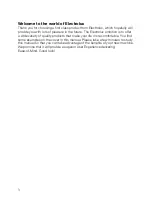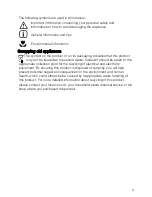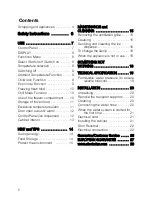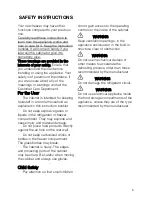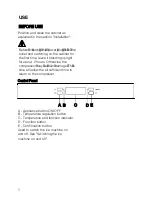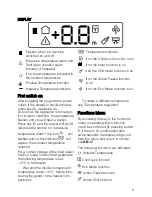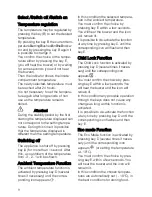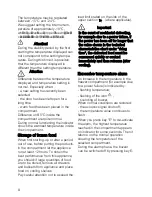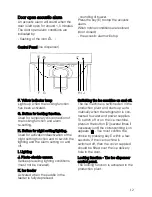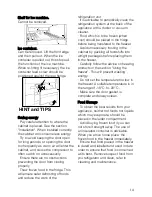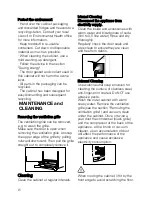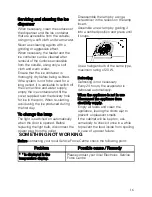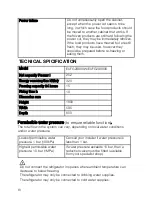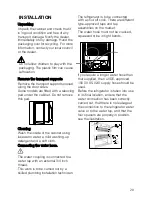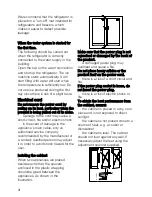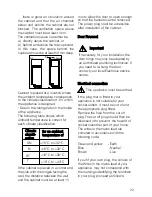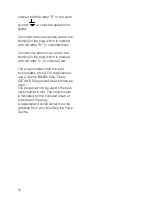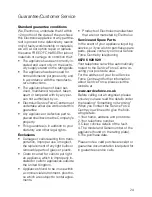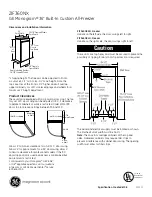
15
Protect the environment
· Hand over the cabinet packaging
and discarded fridges and freezers to a
recycling station. Contact your local
council or Environmental Health office
for more information.
· Keep foodstuff in re-usable
containers. Cut down on disposable
material as much as possible.
· When cleaning the cabinet, use a
mild washing-up detergent.
· Follow the advice in the section
"Saving energy"
· The door gasket and coolant used in
this cabinet will not harm the ozone
layer.
· All parts in the packaging can be
recycled.
· The cabinet has been designed for
easy dismantling and subsequent
recycling.
MAINTENANCE and
CLEANING
Removing the ventilation grille
The ventilation grille can be removed,
e.g. to wash the grille.
Make sure the door is open when
removing the ventilation grille. Unsnap
the upper edge of the grille by pulling
outward/downward. Then pull the grille
straight out to completely remove it.
Cleaning
Clean the cabinet at regular intervals.
Internal Cleaning
Disconnect the appliance from
electricity supply.
Clean the inside and accessories with
warm water and bicarbonate of soda
(5ml to 0,5 litre water) Rinse and dry
thoroughly.
Regularly check the door seals and
wipe clean to ensure they are clean
and free from debris.
External Cleaning
Use water/neutral soap emulsion for
cleaning the surface of stainless steel,
anti-finger-print coated. Do NOT use
abrasive paste.
Wash the outer cabinet with warm
soapy water. Remove the ventilation
grille (see the section "Removing the
ventilation grille") and vacuum-clean
under the cabinet. Once or twice a
year dust the condenser (black grille)
and the compressor at the back of the
appliance, with a brush or vacuum
cleaner, as an accumulation of dust
will affect the performance of the
appliance and cause excessive
electricity consumption.
When moving the cabinet, lift it by the
front edge to avoid scratching the floor.



